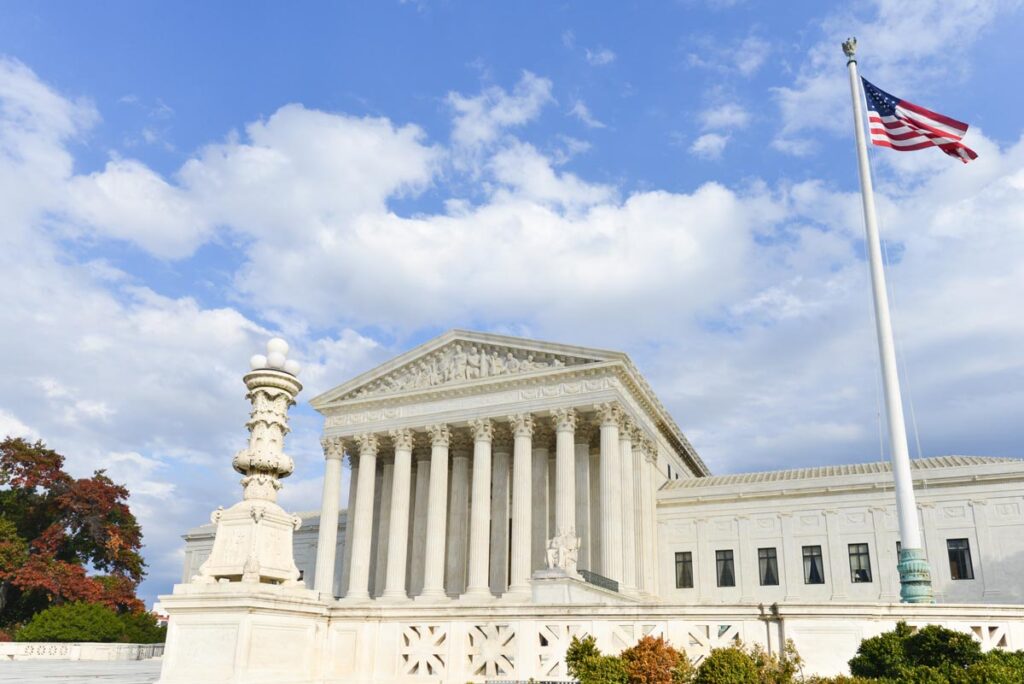
Indian Child Welfare Act overview:
- Who: The Supreme Court voted 7-2 last week to uphold the Indian Child Welfare Act (ICWA).
- Why: Opponents of the ICWA argued the law exceeded governmental authority on imposing a standard procedure for child-custody proceedings.
- Where: Nationwide.
The U.S. Supreme Court voted 7-2 to uphold the Indian Child Welfare Act (ICWA) last week, ruling the law does not exceed Congress’ legislative power and that it does not violate the nondelegation doctrine.
The Indian Child Welfare Act, which was established in 1978, was created as a way to prevent attacks on Native American heritage, Law360 reports.
The Supreme Court, meanwhile, had reportedly been tasked with determining whether or not the law exceeded governmental authority on imposing a standard procedure for child-custody proceedings.
Native rights advocates had been cautioning for months that an unfavorable outcome in the Supreme Court could end up threatening a lot of Native American law and, therefore, tribal sovereignty, Law360 reports.
In an opinion last week, Justice Amy Coney Barrett wrote that the court determined Congress had acted within its “plenary authority” to “regulate Indian affairs” when it originally enacted the ICWA almost 50 years ago.
Supreme Court declines to give substantive ruling on whether ICWA is racially discriminatory
The Supreme Court rejected an argument by the state of Texas and a group of non-Native challengers who claimed the law had illegally made state authorities responsible for administering federal rules.
The high court also declined to give a substantive ruling over an argument that the ICWA racially discriminates by allegedly giving preference to Native families during the adoption process.
The majority of the justices, meanwhile, determined that the individual challengers to the ICWA lacked standing to bring an equal protection claim, ruling the complaint did not involve state authorities who had implemented statutory requirements.
“Without preclusive effect, a declaratory judgment is little more than an advisory opinion,” Barrett wrote.
Native American tribes celebrated the Supreme Court’s decision, according to Law360.
In 2020, several advocacy groups took aim at then-President Donald Trump’s administration after it cut back on data collection for LGBTQ+ foster and tribal youths.
Do you agree with the Supreme Court’s decision to uphold the Indian Child Welfare Act? Let us know in the comments.
The Indian Child Welfare Act cases are Haaland, et al. v. Brackeen, et al., Case No. 21-376, Cherokee Nation, et al. v. Brackeen, et al., Case No. 21-377, Texas, et al. v. Haaland, et al., Case No. 21-378, and Brackeen, et al. v. Haaland, et al., Case No. 21-380, in the Supreme Court of the United States.
Don’t Miss Out!
Check out our list of Class Action Lawsuits and Class Action Settlements you may qualify to join!
Read About More Class Action Lawsuits & Class Action Settlements:














